Moran BercoviciAssociate Professor, Faculty of Mechanical Engineering; Head, Technion Microfluidic Technologies Laboratory, Technion, Israel Institute of Technology Moran Bercovici is an Associate Professor of Mechanical Engineering and Biomedical Engineering at Technion – Israel Institute of Technology. His lab combines experimental, analytical, and computational tools to study problems characterized by coupling between fluid mechanics, heat transfer, electric fields, chemical reactions, and biological processes. He is equally interested in understanding basic physical mechanisms and in leveraging them to create new tools and technologies across different disciplines. His current focus areas are in rapid prototyping, adaptive optics, microscale flow control, configurable microstructures, and lab-on-chip systems. Moran holds a PhD in Aeronautics and Astronautics from Stanford University, worked as postdoctoral fellow at Stanford School of Medicine, and was a Harrington Faculty Fellow at the University of Texas at Austin. He authored and co-authored over 50 articles in top peer-reviewed journals, is the inventor of more than 20 patents, and is the recipient of several awards including the EU ERC Starting Grant, and the Blavatnik Prize – considered one of the most prestigious awards to young scientists in Israel. |
Martyn BoutelleProfessor of Biomedical Sensors Engineering, Imperial College London Martyn Boutelle is Professor of Biomedical Sensors Engineering in the Department of Bioengineering, Imperial College London, and Associate Provost for Estates Planning for Imperial College. |
Roger KammCecil and Ida Green Distinguished Professor of Biological and Mechanical Engineering, Massachusetts Institute of Technology (MIT) Kamm is currently the Cecil and Ida Green Distinguished Professor of Biological and Mechanical Engineering at MIT, where he has served on the faculty since 1978. Kamm has long been instrumental in developing research activities at the interface of biology and mechanics, formerly in cell and molecular mechanics, and now in engineered living systems. Current interests are in developing models of healthy and diseased organ function using microfluidic technologies, with a focus on vascularization. Kamm has fostered biomechanics as Chair of the US National Committee on Biomechanics (2006-2009) and of the World Council on Biomechanics (2006-2010). Kamm currently directs the NSF Science and Technology Center on Emergent Behaviors of Integrated Cellular Systems. He is the 2010 recipient of the ASME Lissner Medal (American Society of Mechanical Engineering) and the 2015 recipient of the Huiskes Medal (European Society of Biomechanics), both for lifetime achievements, and is the inaugural recipient of the ASME Nerem Medal for mentoring and education. He was elected to the National Academy of Medicine in 2010. Kamm is co-founder of two companies, Cardiovascular Technologies and AIM Biotech, a manufacturer of microfluidic systems for 3D culture. |
Thomas LaurellProfessor, Lund University Thomas Laurell is Professor in Medical and Chemical Microsensors at Lund University. Laurell has a background in engineering with a focus on biomedical technology, with a PhD from the technical faculty at Lund University. Laurell has 20 years experience in the development of lab-on-a-chip based bioanalytical and medical diagnostic technology. He was appointed distinguished professor at dept. Biomedical Engineering at Dongguk University, Seoul, Korea in 2009. |
Roberto OsellameProfessor, Politecnico di Milano; Senior Researcher, Institute for Photonics and Nanotechnologies (IFN) – National Research Council (CNR), Milan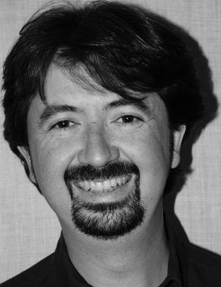 Roberto Osellame received the Laurea Degree (cum laude) in electronic engineering from the Politecnico di Milano (Italy) in 1996 and the Ph.D. degree in Physics from the Politecnico di Torino (Italy) in 2000. Since 2001 he is a Staff Researcher of the Institute for Photonics and Nanotechnologies (IFN) of the Italian National Research Council (CNR), where he became Senior Researcher in 2007. Since 2001 he is also a Contract Professor of the Politecnico di Milano, teaching Quantum Optics and Information in the Faculty of Engineering. Dr. Osellame has been one of the pioneers in femtosecond laser micromachining of transparent materials. His research activity includes the development of photonic circuits for quantum computing, the fabrication by two photon polymerization of micro/nano-structures of arbitrary geometry, and the integration of optical waveguides and microchannels for onchip sensing in lab-on-a-chip and optofluidic manipulation of single cells. He is author of more than 160 publications on major international journals and holds 6 patents in the field of optics and photonics technology. He has been awarded the 'Ricerca.tissimi' prize of Regione Lombardia as one of the 20 best researchers in the 'life sciences' field. He has been awarded the CNR prize in 2009 for 'results of particular excellence and strategic national and international relevance'. He is Chair of the Materials Processing with Lasers sub-committee at CLEO-Europe international conference and co-Chair of the Photonics West Conference Frontiers in Ultrafast Optics: Biomedical, Scientific, and Industrial Applications. He has been involved in several european projects and has been the Coordinator of FP7-STREP project 'microFLUID' for the development of plastic lab-on-a-chip devices, fabricated by femtosecond lasers. In 2017 he has been awarded an ERC Advanced Grant for the project 'CAPABLE' for the development of an integrated photonic platform for quantum information processing. |
Ian PapautskyRichard and Loan Hill Professor of Bioengineering, Co-Director, NSF Center for Advanced Design & Manufacturing of Integrated Microfluidics, University of Illinois at Chicago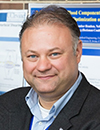 Ian Papautsky is the Richard and Loan Hill Professor in the biomedical engineering department. His lab focuses on using microfluidics to innovate blood analysis. Papautsky was one of the pioneers of the inertial microfluidics technology for label-free isolation and analysis of rare cells. His recent work has focused on applying this approach to the fractionation of blood, as well as capture and subsequent molecular profile analysis of circulating tumor cells for liquid biopsy. Papautsky is also co-director of the National Science Foundation Center for Advanced Design and Manufacturing of Integrated Microfluidics, an industry-university collaborative research center that fosters interactions between academics and businesses in the areas of medical devices, pharmacology, and precision agriculture. Papautsky joined the University of Illinois Chicago in 2016. He has been recognized with many awards and honors, including Ohio Bioscience 30 in Their 30s. He is fellow of the AIMBE and the RSC. |
Oliver SchmidtProfessor & Director, Leibniz-Institut für Festkörper- und Werkstoffforschung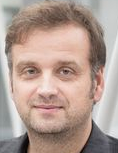 Prof. Dr. Oliver G. Schmidt is a Director at the IFW Dresden, Germany, and holds a full Professorship for Material Systems for Nanoelectronics at the Chemnitz University of Technology,Germany. His interdisciplinary activities bridge across several research fields, ranging from nanophotonics, nanoelectronics and microfluidics to microrobotics and biophysics. He has received several awards: the Otto-Hahn Medal from the Max-Planck-Society in 2000, the Philip-Morris Research Award in 2002 and the Carus-Medal from the German Academy of Natural Scientists Leopoldina in 2005. In 2010, he was awarded the Guinness World Record for the smallest man-made jet engine. More recently, he received the International Dresden Barkhausen Award 2013 for his work on “Materials, Architectures and Integration of Nanomembranes”. He has published more than 650 papers in peer-reviewed journals and has an H-Index of 82. |
Amy ShenProfessor and Provost, Okinawa Institute of Science and Technology Graduate University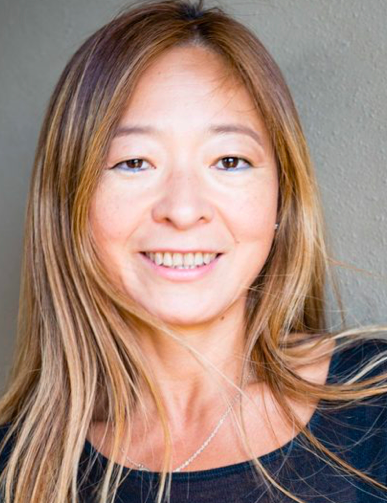 Amy Shen is the provost and professor at Okinawa Institute of Science and Technology Graduate University (OIST) in Japan, leading the Micro/Bio/Nanofluidics Unit. Amy's research is focused on microfluidics and lab-on-a-chip devices at the bio/nano-interface, with applications in biotechnology. She is a Fellow of the American Physical Society, the Royal Society of Chemistry, and Society of Rheology. Amy was also a Fulbright Scholar in 2013. She is an associate editor for Soft Matter and serves on the editorial advisory board for ACS Sensors, Journal of Rheology, and Physics of Fluids. |
Steve SoperFoundation Distinguished Professor, Director, Center of BioModular Multi-Scale System for Precision Medicine, The University of Kansas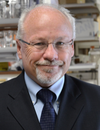 Prof. Soper is currently a Foundation Distinguished Professor in Chemistry and Mechanical Engineering at the University of Kansas, Lawrence. Prof. Soper also holds an appointment at Ulsan National Institute of Science and Technology in Ulsan, South Korea, where he is a World Class University Professor. He is also serving as a Science Advisor for a number of major worldwide companies. Prof. Soper is currently on the Editorial Board for Scientific Reports and Journal of Micro- and Nanosystems. |
Gregory TimpKeough-Hesburgh Professor of Electrical Engineering & Systems Biology, The University of Notre Dame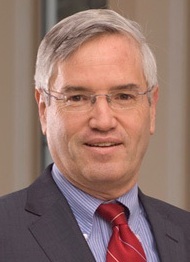 Gregory Louis Timp received his Ph.D. from the Massachusetts Institute of Technology in 1986 working with Mildred Dresselhaus. After a post-doc at IBM with Alan Fowler, he joined Bell Laboratories in 1988, where he engaged in research on nanostructure physics. In 2010, he joined the faculty of Notre Dame to pursue nano-biotechnology with an appointment jointly in Biological Sciences and Electrical Engineering. He is the Keough-Hesburgh professor of Engineering and Systems Biology. He is a Fellow of the American Association for the Advancement of Science; a Fellow of the American Physical Society; and a Fellow of the Institute of Electrical and Electronic Engineers. He has published over 150 articles in scientific journals and holds 10 patents. |
Jaap den ToonderProfessor and Chair of Microsystems, Eindhoven University of Technology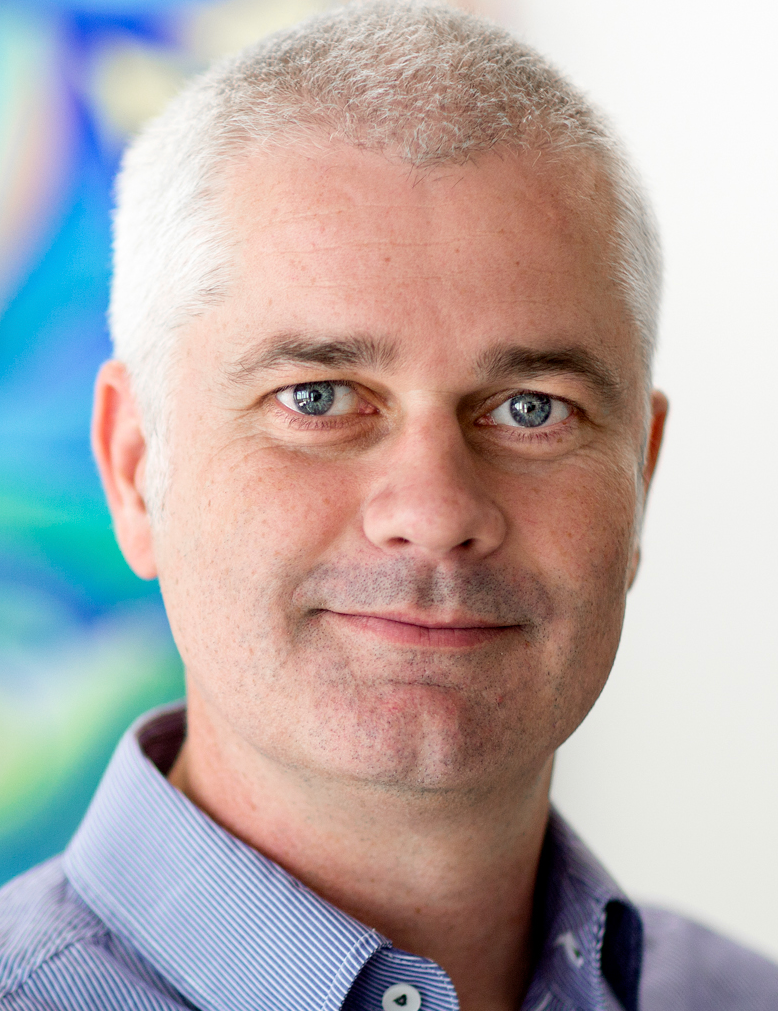 Jaap den Toonder is full professor and Chair of the Microsystems group at Eindhoven University of Technology. Jaap den Toonder studied at Delft University of Technology and got his Masters degree in Applied Mathematics in 1991 (cum laude). He received a PhD degree in Mechanical Engineering (cum laude) from the same university in 1996. In 1995, he joined Philips Research Laboratories in Eindhoven, The Netherlands, where he started working in the field of the mechanics of solid materials. In 2008, he became Chief Technologist, leading the R&D program on microfluidics. He was involved in research programs on molecular diagnostics, lab-on-chip, immersion lithography, and energy applications. Next to his main job at Philips, Jaap den Toonder was a part-time professor at the Materials Technology group of the Eindhoven University of Technology between 2004 and 2013, and he became a full-time professor in May 2013. His current main research interests are: micro-fluidics, out-of-cleanroom micro-fabrication technologies, mechanical properties of biological cells and tissues, nature-inspired micro-actuators, organs on chips. Jaap den Toonder has (co-)authored over 90 scientific papers, as well as over 40 patent applications. |
Victor UgazProfessor & Interim Department Head, Texas A&M University Victor M. Ugaz is a Professor and Interim Department Head in the Artie McFerrin Department of Chemical Engineering at Texas A&M University. He holds the title of Carolyn S. & Tommie E. Lohman '59 Professor in Engineering Education and serves as Chair of the interdisciplinary Master of Biotechnology (MBIOT) program. Dr. Ugaz’s research interests involve developing microfluidic systems to enable fast and inexpensive medical diagnostics and to understand the spontaneous organization of chemical building blocks essential to the origin of life. |




